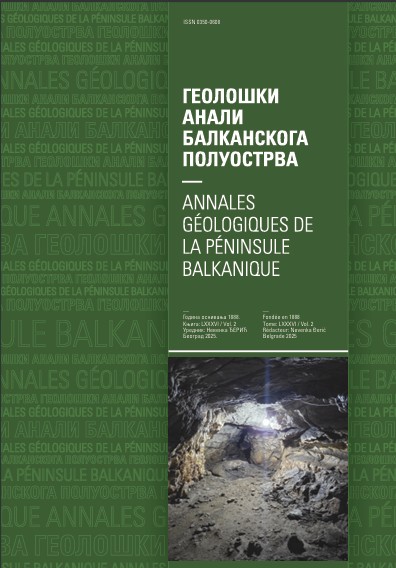Correlability of Solar Wind with Seismic Events in the Balkan Peninsula Zone
Abstract
The Solar Heliospheric Observatory (SOHO) satellite was launched on the 2nd of December 1995 at L1 Lagrange point (1.5 x 106 km from Earth) with the purpose of gathering data for helioseismology, remote sensing of the solar atmosphere, and solar wind in situ. The satellite was positioned into orbit in early 1996, with data acquisition expected to commence on January 20th. The correlation between increased values of solar wind parameters and earthquakes in the Balkan peninsula zone between 1996 and 2018 was made possible by data obtained through continuous proton density and proton velocity monitoring. The assessment of the anomalous threshold was based on statistically determined parameters due to the huge fluctuation of solar wind over time and distinct value increases of proton density and speed. Visual representations of proton density and proton speed were created for the time window preceding each earthquake after defining the boundary between normal and anomalous values. According to the chart analysis, increased proton density occurred in 40 of the 50 cases observed, whereas increased proton velocity appeared in 28 of the 50 cases. Using hypergeometrical probability and an unbiased test with randomly generated parameters, the discovered correlation was statistically verified. A retrospective selection bias analysis is also provided in the research paper.
Copyright (c) 2021 Geološki anali Balkanskoga poluostrva

This work is licensed under a Creative Commons Attribution 4.0 International License.










